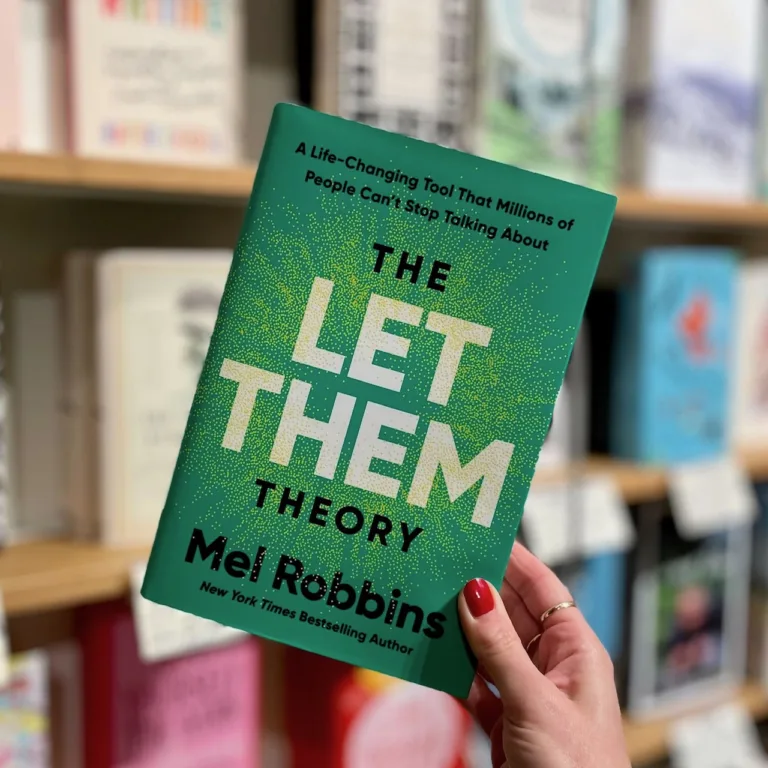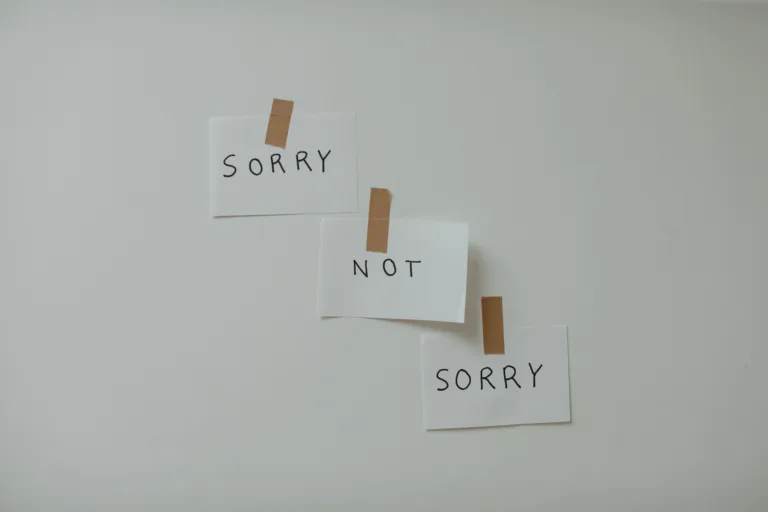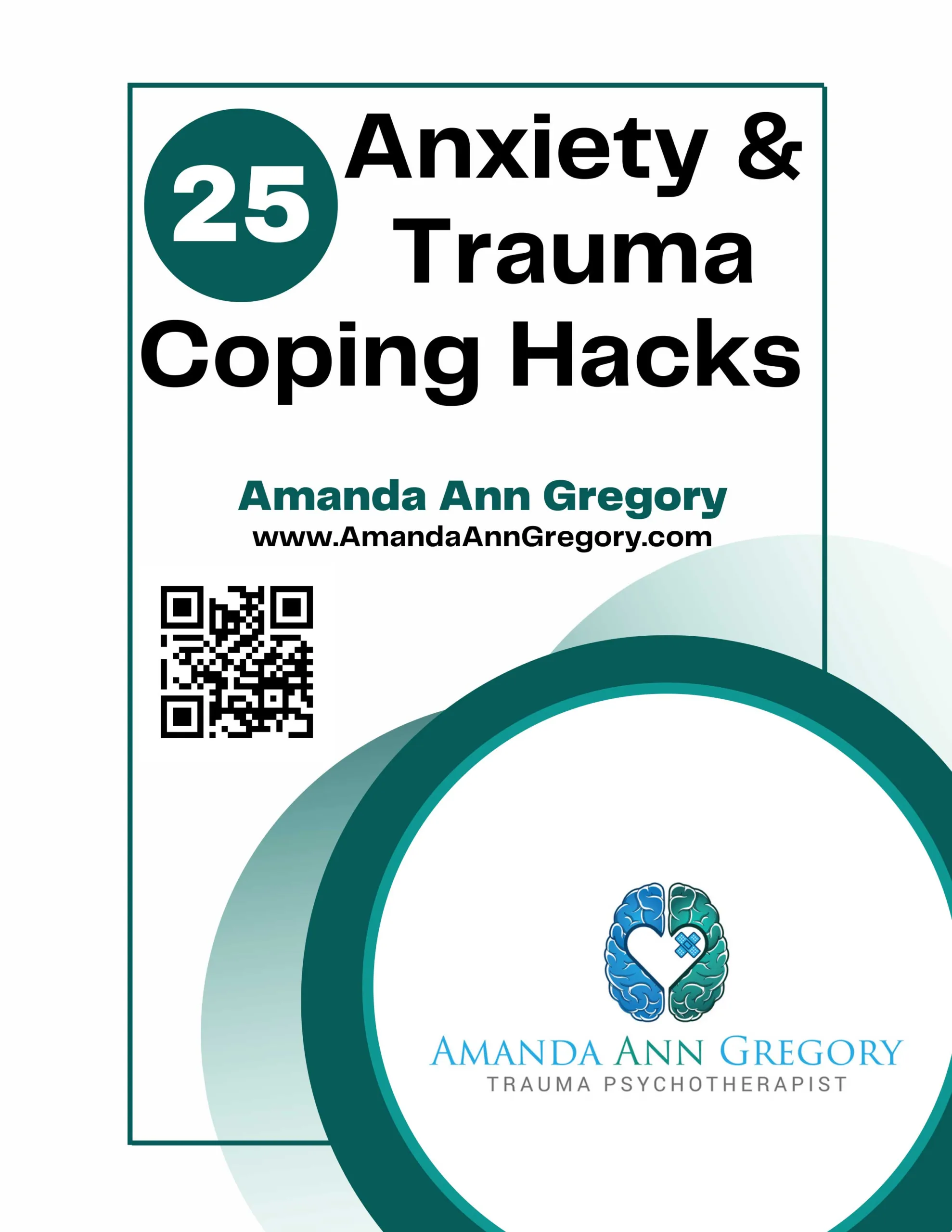Complex trauma – a real and serious mental health condition, yet one that remains unrecognized by the DSM (Diagnostic and Statistical Manual of Mental Disorders) – is one of the most misunderstood conditions in psychology. The National Child Traumatic Stress Network defines complex trauma as “children’s exposure to multiple traumatic events—often of an invasive, interpersonal nature—and the wide-ranging, long-term effects of this exposure. These events are severe and pervasive, such as abuse or profound neglect.” On their path to recovery, complex trauma survivors often seek validation, information, and hope. The following books are great resources for meeting these needs.
What My Bones Know: A Memoir of Healing from Complex Trauma
Author: Stephanie Foo
What happens when a successful journalist is told that she has Complex PTSD? Stephanie Foo embarks on a journey of research, recovery, and reckoning. This memoir is honest, informative, and validating as Foo describes how complex trauma impacted her health, relationships, and career. She exposes the difficult journey from diagnosis to healing and all of the obstacles (breaking up with therapists, trying many different therapies, navigating incapable family members, and so on) that trauma survivors often experience. Foo also explores how intergenerational trauma has impacted her community, family, and adult relationships, and reflects on her journey to find and embrace her chosen family. In the end, her message is one of hope.
Complex PTSD: From Surviving to Thriving: A Guide and Map for Recovering from Childhood Trauma
Author: Pete Walker, LMFT
Need a thoroughly researched and informative yet jargon-free self-help book? Marriage and family psychotherapist Peter Walker provides this vital resource as he addresses multiple topics, such as attachment, shrinking the inner and outer critic, managing co-dependency, and navigating common obstacles in trauma recovery. Walker provides case studies to illustrate important concepts, including his own personal experiences as a complex trauma survivor, which is rarely included in books written by psychotherapists. Walker provides multiple strategies and options for recovery depending upon each survivor’s distinct response to trauma, and he encourages survivors to abandon any strategies that do not work for them. If you are looking for a practical, effective, and educational self-help book, read this one.
What Happened to You?: Conversations on Trauma, Resilience, and Healing
Authors: Dr. Bruce D. Perry and Oprah Winfrey
What happens when media mogul and childhood trauma survivor Oprah Winfrey and psychiatrist, neuroscientist, and trauma expert Dr. Bruce D. Perry sit down to have a conversation about complex trauma? This book. Perry explains the science, provides vivid case studies, and challenges readers to change their perceptions of trauma. Winfrey provides probing questions, exposes the impact of culture and intersectionality, and shares her own story as a trauma survivor. One of the biggest themes in this book is the need to shift away from the question “What’s wrong with you?” and to embrace, instead, the question “What happened to you?” Such a paradigm shift isn’t an insignificant one as it challenges the current symptom obsessed culture and encourages us to focus instead on the causes, which is often trauma.
Trauma and Expressive Arts Therapy: Brain, Body, and Imagination in the Healing Process
Author: Cathy A. Malchiodi, PhD
If you’ve tried talk therapy and it only helped so much, or not at all, this is the book for you. Cathy A. Malchiodi, PhD is a pioneering expressive arts therapist who shares decades of research, case studies, and interventions. Expressive arts therapy utilizes bodily and sensory interventions, such as movement, sound, play, art, and drama, to treat trauma – instead of relying solely upon talk therapy. As a trauma therapist, I was able to implement these interventions immediately as this book includes templates and access to a Web page where you can download and print materials. The vast interventions include strategies to enhance relationships, safety, self-regulation, resilience, and mindfulness to name a few. A wonderful benefit of this book is that these interventions as designed for adults and children alike.
Healing Trauma: A Pioneering Program for Restoring the Wisdom of Your Body
Author: Peter A. Levine, PhD
Trauma lives in your body, and you may need to try strategies that focus specifically on your body in order to recover. Dr. Peter A. Levine expands upon his theory of Somatic Experiencing (SE), which is a type of therapy that focuses on the connection between the mind and body which he introduced in his groundbreaking book Waking the Tiger. Levine provides a how-to guide for using SE including methods for uncovering the physiological roots of your emotions, emergency “first-aid” measures for times of distress, and ways to develop bodily self-awareness in order to “re-negotiate” and heal from traumas by “revisiting” them rather than reliving them. SE is highly adaptable as you don’t have to focus solely on these method as, SE can often be combined with other recovery methods.
Warriors of Love
Author and illustrator: Nina Mutik
Need an illustrated, validating, and uplifting book about complex trauma? Are you looking for a book to read to children? Artist Nina Mutik has created a 10-page booklet suitable for adults and children. It’s simple and to the point, with amazing illustrations. Mutik tackles the difficult topics developmental trauma and attachment, making them accessible to a general audience. Mutik doesn’t hide behind a word such as “healing,” but instead focuses on the strength of trauma survivors who’ve had to battle in order to learn to love. This book isn’t only for survivors, as Mautik also conveys important messages for those who loved ones are trauma survivors.
BONUS!
11. You Don’t Need To Forgive: Trauma Recovery on Your Own Terms
Amanda Ann Gregory (released February 25, 2025)
You Don’t Need to Forgive is an invaluable resource for trauma survivors and their clinicians who feel alienated and even gaslighted by the toxic positivity and moralism that often characterizes attitudes about forgiveness in psychology and self-help. Bringing together research and testimony from psychologists, psychotherapists, criminologists, philosophers, religious leaders, and trauma survivors, psychotherapist and expert in complex trauma recovery Amanda Ann Gregory explores the benefits of elective forgiveness and the dangers of required forgiveness. Elective forgiveness gives survivors the agency to progress in their recovery on their own terms. Forgiveness is helpful for some, but it is not universally necessary for recovery; each person should have the power to choose.
Purchase my book, You Don’t Need to Forgive
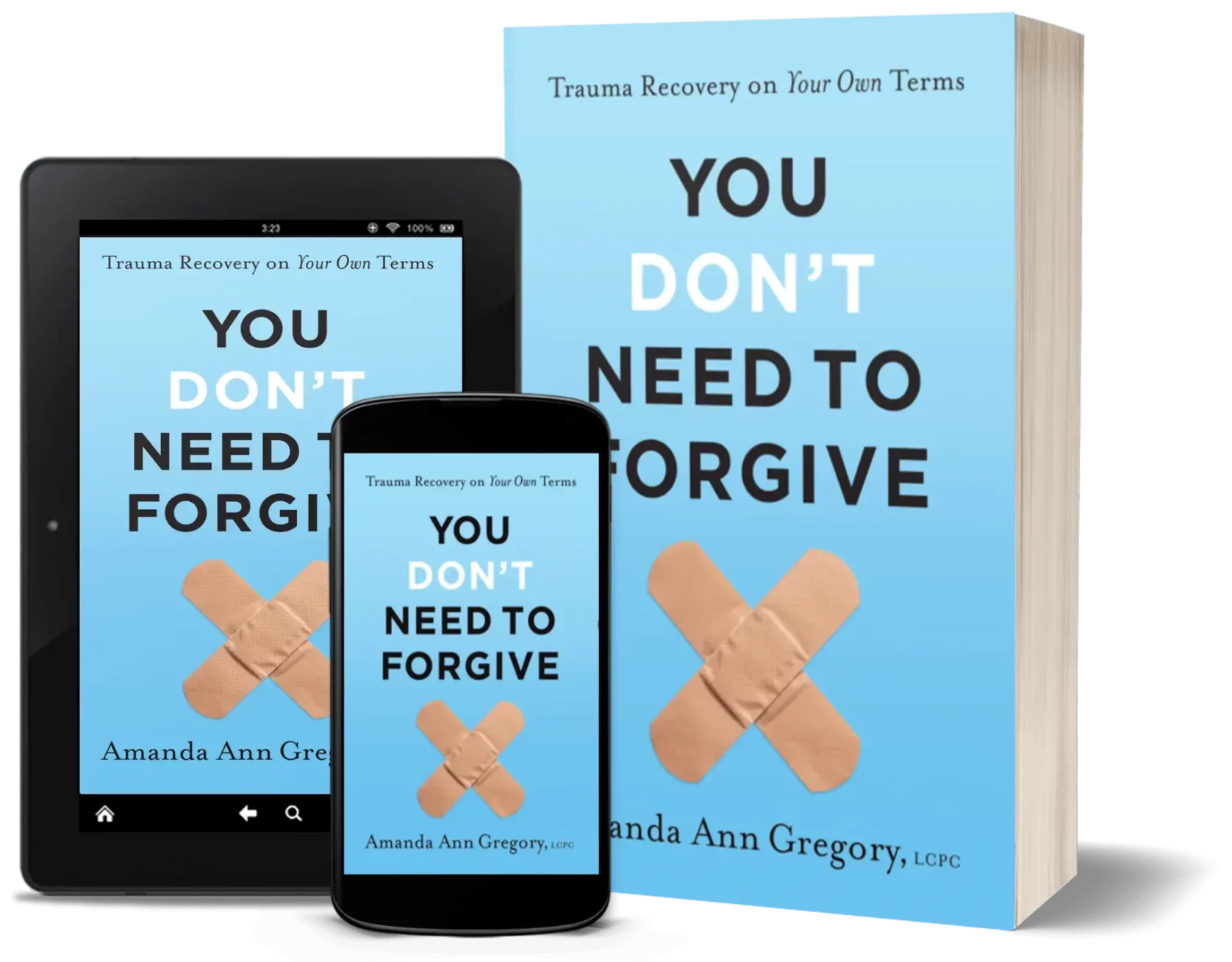
Sign up to get your Free eBook: 25 Anxiety & Trauma Coping Hacks
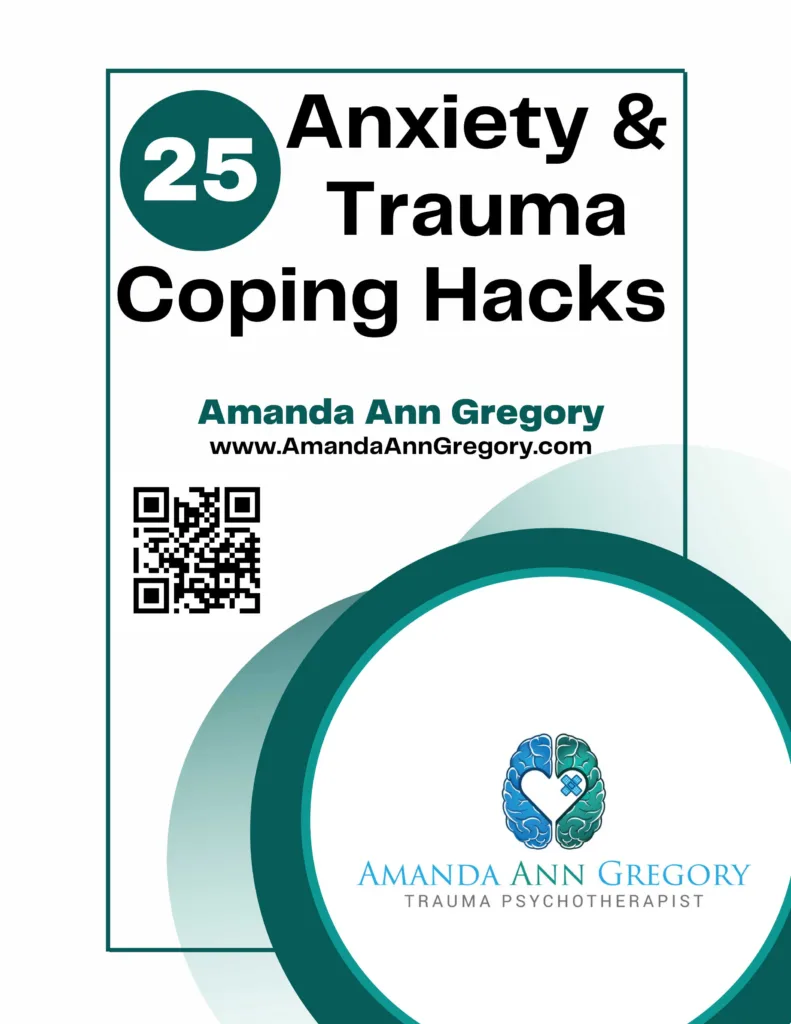
Hire me to speak at your event! Contact Me


